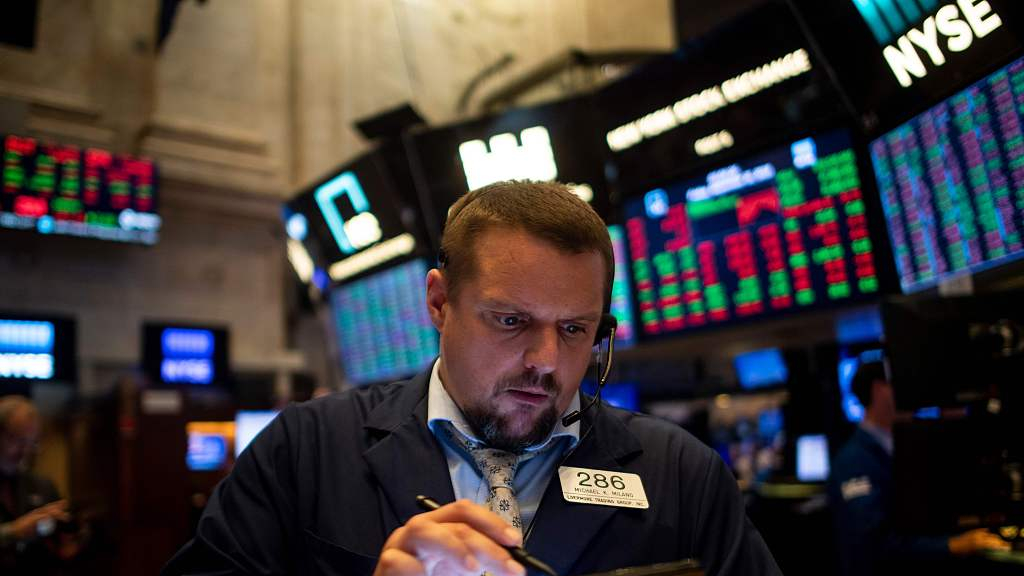
As Bloomberg reported on Friday, the U.S. is considering delisting Chinese companies from the U.S. stock exchanges. Even though the White House is still in the preliminary stage of such a discussion and how exactly the delisting would work is not clear yet, if such a plan materializes, the China-U.S. relations will go down an even more perilous path.
One reason cited for this consideration of the White House is China's reluctance to submit its companies to the "regulatory oversight" and thus some Americans believe that Chinese companies would expose the U.S. investors to great risks. However, this has been a talking point for the U.S. for years, as Chen Jiahe, the chief strategist at Cinda Securities, pointed out in an interview with CGTN, and so discussing the issue now amid the heightened trade war has a much wider implication of the U.S. accelerated efforts to enable a clean economic decoupling between the two biggest economic powerhouses in the world.
This is deeply worrying. During the ongoing trade war, Washington has taken aim at China's tech sector which saw the U.S. imposing severe restrictions on Chinese tech companies, such as Huawei and ZTE, citing national security concerns. Policies taken by the White House in this area are interpreted by many as an attempt to secure the U.S. technological hegemony and stymie China's technological advancement by cutting China off from the U.S. market.
Now, the newest deliberation to put restrictions on capital flows to China is a continuation and an expansion of the "decoupling" policy into the financial sector, which is a dangerous sign that the U.S. may be willing to take even more drastic actions in the future in order to shut China off, according to John Gong, a professor of economics at the University of International Business and Economics in Beijing.
What is even more worrying is some U.S. officials' rhetoric about the issue, which lays bare the ever mounting distrust and paranoia towards China among many American politicians. For example, the U.S. senator Marco Rubio has been at the forefront of continuous attacks against China's presence in the U.S. market and has been one of the main advocates for limiting financial investments between the U.S. and China.
In a June letter to MSCI, the global securities index provider, Marco Rubio asked MSCI to ensure that "U.S. investors were not funneling money into Chinese state organs, or businesses linked to Beijing," according to Bloomberg.

Huawei Mate 20 X (5G) is pictured at the IFA consumer tech fair in Berlin, Germany, September 5, 2019. /VCG Photo
Huawei Mate 20 X (5G) is pictured at the IFA consumer tech fair in Berlin, Germany, September 5, 2019. /VCG Photo
Former White House Chief Strategist Steve Bannon also regretted over the "fact" that the U.S. investments in Chinese companies amounted to the country lending enormous financial support to the Communist Party of China and the Chinese state which is an economic rival to the U.S.
Therefore, it looks like what is at the heart of the issue is not China's "misbehavior," but rather these politicians' disapproval of China's governance model and its enormous growth over the course of the past four decades.
Many of them believe that the line between Chinese state-owned companies and private companies is blurred as there are inextricable links between the Chinese state and Chinese companies. And thus, the action of supporting Chinese companies would translate into supporting the Chinese state and its ruling party and so the profits Chinese companies make will indirectly facilitate China's state-sponsored activities, which is clearly against the U.S. interests.
However, this is a petty thought and reveals the disturbing mentality in some Americans that keep driving the tensions high between China and the U.S. It shows that some U.S. politicians have no tolerance for differences in ways of development and that the real reason for an economic decoupling is to put an end to the economic ascendancy of a country that the U.S. believes it is at odds with in all sorts of areas and also, to make sure America has no competitor that would challenge its position in the world.
The stock market slipped on the Friday news. And as it shows, policies like this only serve to hurt investors' confidence and do more damage to anyone but China. For example, Chinese analysts point out that even though banning Chinese companies on the U.S. market will certainly have an effect on these companies' fundings, the impact cannot be exaggerated. For instance, John Gong said these companies can seek to be listed on Hong Kong's and European stock exchanges. Moreover, if the action of delisting is taken, investors who invested in those companies will also suffer economic losses, most of whom are American, European and those from the Middle East, Chen said.
Chen added that China's economy is still growing at a remarkable speed, even at a growth rate of between 6-7 percent and thus it still presents enormous opportunities to investors. Shutting the door on Chinese companies and the Chinese market would thus be a loss for investors outside China.
However, it is worth noting that, again, it is not certain yet that the current discussion will leading anywhere soon. A lot could happen before anything concrete concerning the delisting can come out of the White House. For example, whether Trump will secure a second term will certainly have a bearing on where this issue is going next. But hopefully businesses interests will make sure that path is not taken.
(If you want to contribute and have specific expertise, please contact us at opinions@cgtn.com.